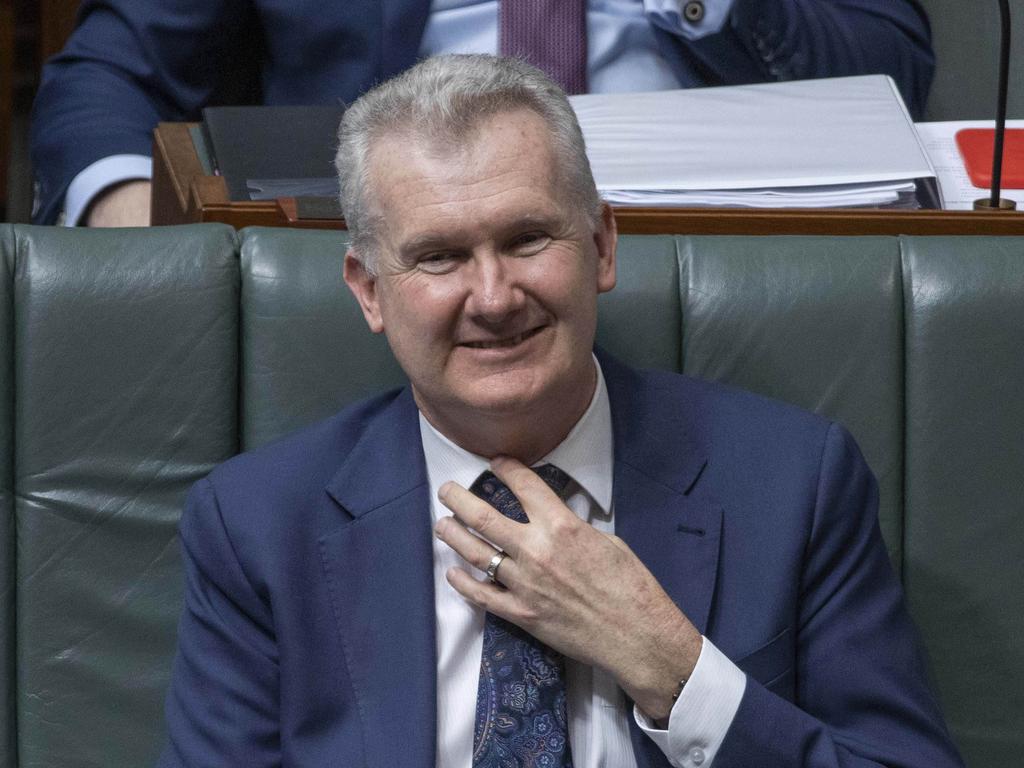Union claims on our record don’t stand up to scrutiny

They’re one of Australia’s most militant unions and have a long history of making false claims about Qantas. Writing in these pages on Wednesday, TWU national secretary Michael Kaine resorted to his standard fare of innuendo and partial truths suggesting that Qantas has been abusing and gaming the system to avoid enterprise bargaining.
So, let’s put some facts on the table.
First, far from seeking to avoid it, Qantas has probably the deepest commitment to enterprise
bargaining of any large corporate in Australia. Across our business we have a total of 56 agreements covering 85 per cent of our more than 22,000 workforce – each negotiated with unions and agreed to by employees.
Second, we have the strongest terms and conditions of any airline in Australia and are one of the highest paying companies in the country. Our average non-executive salary is more than $100,000.
Third, after a pandemic-induced hiatus, we’re successfully reaching new agreements with our people.
Over the past year we’ve reached agreement with 16 work groups covering more than 5500 staff. We are offering three per cent annual wage increases and employees will have the opportunity to secure more than $10,000 in cash and share bonuses, which is more than 10 per cent of the average annual wage.
These are inconvenient truths for the TWU. But they should know this, given one of our most recent agreements was reached with our QantasLink and freight ground handlers, who are represented by the TWU.
Not agreeing to every union demand or asking for productivity improvements isn’t an abuse of
bargaining as Mr Kaine claims. Nor is disagreeing with union leaders who, for their own recruiting drives, are intent on securing uncompetitive industry-wide terms.
Negotiation is a process that sometimes results in robust debates, which is part and parcel of a system that relies on give-and-take.
Qantas does not resile from the fact that in order to compete domestically and internationally, it has needed to evolve. The alternative was to stand still and end up going the way of Ansett as new competitors were established.
Mr Kaine also highlighted the number of subsidiaries we have as if it is unusual. What he fails to mention is that we operate a number of businesses including Jetstar, Qantas Domestic, Qantas International, regional services, an airfreight operation and mining charter services.
Enterprise-level agreements have allowed these businesses to compete domestically – in the most competitive and open aviation market in the world – and internationally, against largely foreign state-owned carriers.
Jetstar has flourished and democratised air travel for Australians. Network Aviation has grown from a handful of aircraft to a significant charter airline serving Western Australians and their burgeoning resources industry. And Qantas International has strengthened with the promise of growth and innovation to come.
Mr Kaine’s analysis also completely ignores what Qantas has been through in the past three years and the impact of the Covid-19 pandemic, lockdowns and border closures. Overall, the pandemic cost us more than $25bn in revenue and saw us post $7bn in losses.
At one point we were 11 weeks away from running out of cash. Any business facing a crisis of that size is going to have to make significant changes. That included outsourcing our baggage handling at the 10 remaining ports where we did it in house, which saved us $100 million annually. None of this diminishes the impact that Covid-19 had on our people, thousands of whom lost their job through no fault of their own, but the TWU can’t pretend that the pandemic just didn’t exist now that we’re in recovery.
Finally, Mr Kaine’s memory appears to have completely failed him regarding events of 2011 when he talks of moderate industrial action. A co-ordinated year-long campaign of industrial action by three unions resulted in the cancellation of 600 flights, disrupting more than 70,000 passengers, with one union leader publicly urging passengers to book with another airline. When Qantas took the unprecedented step of grounding the airline in response the unions so-called moderate actions were already costing the airline $15m a week.
As our recent performance has shown, Qantas is on its way back from the Covid-19 crisis – perhaps the largest in our 102-year history. Our people are key to that revival and we want them to participate in the benefits of our recovery. It’s clear that Mr Kaine and his militant cavalcade don’t share this vision, but that won’t stop us from delivering it.
Alan Joyce is chief executive of Qantas







Amid the many falsehoods already circulating about businesses’ approach to industrial relations, we heard several new ones from the Transport Workers’ Union this week.